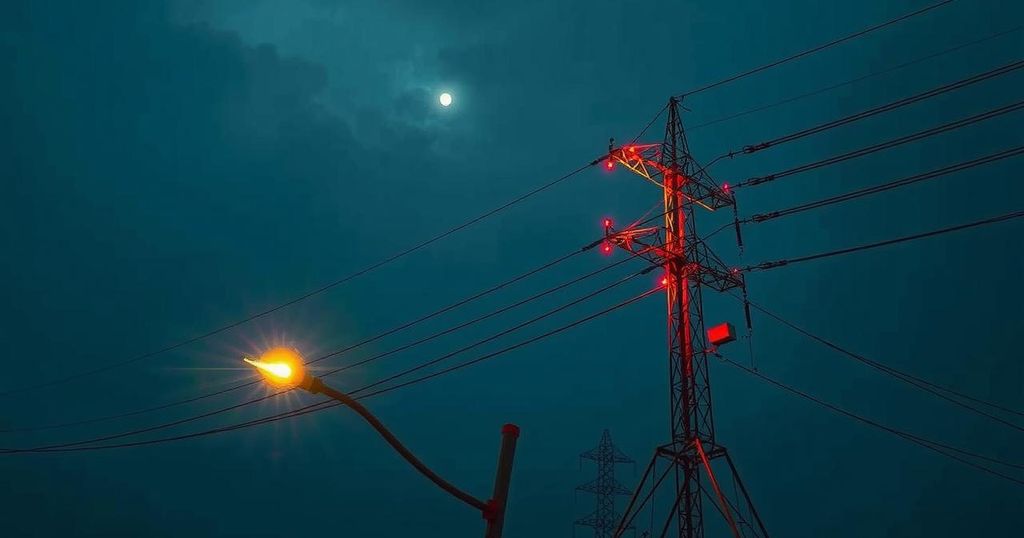Nationwide Blackout in Cuba Following Hurricane Rafael’s Destruction

Cuba is facing a nationwide blackout due to Hurricane Rafael, which made landfall as a Category 3 hurricane and caused major infrastructural damage in the western regions. This is the second power outage in two weeks, with residents expressing despair over the government’s capabilities to respond amidst economic challenges. The 2023 hurricane season continues to be active, raising concerns about future storms and the island’s preparedness.
Cuba is currently grappling with a nation-wide power outage following the recent impact of Hurricane Rafael. This storm, which made landfall as a Category 3 hurricane, is the second significant weather event to leave the island without electricity within a span of two weeks. The destruction wrought by Rafael was primarily felt in the western regions of Cuba, including key agricultural areas known for tobacco and other crops, where winds reaching 185 km/h (115 mph) felled trees and disrupted power lines. The United States National Hurricane Center reported that Rafael subsequently weakened as it entered the Gulf of Mexico. Reports on damage have been minimal, yet residents of Havana emerged to assess the situation, discovering relatively dry streets despite the storm’s violence. The impact on agriculture has been notable, with authorities having to protect substantial quantities of stored tobacco and other produce. Throughout the capital, the streets of Havana remained notably quiet, with businesses and educational institutions shuttered and transport services gradually resuming operations. In light of the hurricane’s devastation, flights were suspended at Havana’s Jose Marti International Airport and other key travel locations. Cuban President Miguel Diaz-Canel’s office announced that military resources would be deployed to aid in recovery efforts, emphasizing the government’s commitment to restore order. However, many Cubans expressed disillusionment regarding the state’s capacity to handle the crisis, citing ongoing economic challenges linked to strained relations with the United States and limited support from allies such as Venezuela. The seasonal hurricane activity has been notably aggressive this year, with Rafael marking the 17th named storm and the 11th hurricane of the current season, contributing to predictions of a challenging 2024 hurricane outlook.
The state of Cuba is highly susceptible to hurricanes due to its geographical location and aging infrastructure, which often struggles to withstand severe weather conditions. The recent events underscore the compounded distress on Cuban society, as the island faces recurrent issues related to power generation and service provision following natural disasters. The socio-economic challenges, compounded by international relations, particularly with the United States, further complicate disaster recovery efforts in the face of such meteorological threats. This season has been particularly intense, with a rise in the number of named storms, indicating growing concerns about future weather-related emergencies.
The aftermath of Hurricane Rafael serves as a stark reminder of the vulnerabilities faced by Cuba amid frequent natural disasters and the limitations of its infrastructure. The government’s mobilization of military resources aims to mitigate the impact; however, public sentiment reveals deep-rooted concerns about the reliability of essential services and economic stability. As the hurricane season progresses, the need for robust disaster preparedness and recovery strategies becomes increasingly critical.
Original Source: www.aljazeera.com








